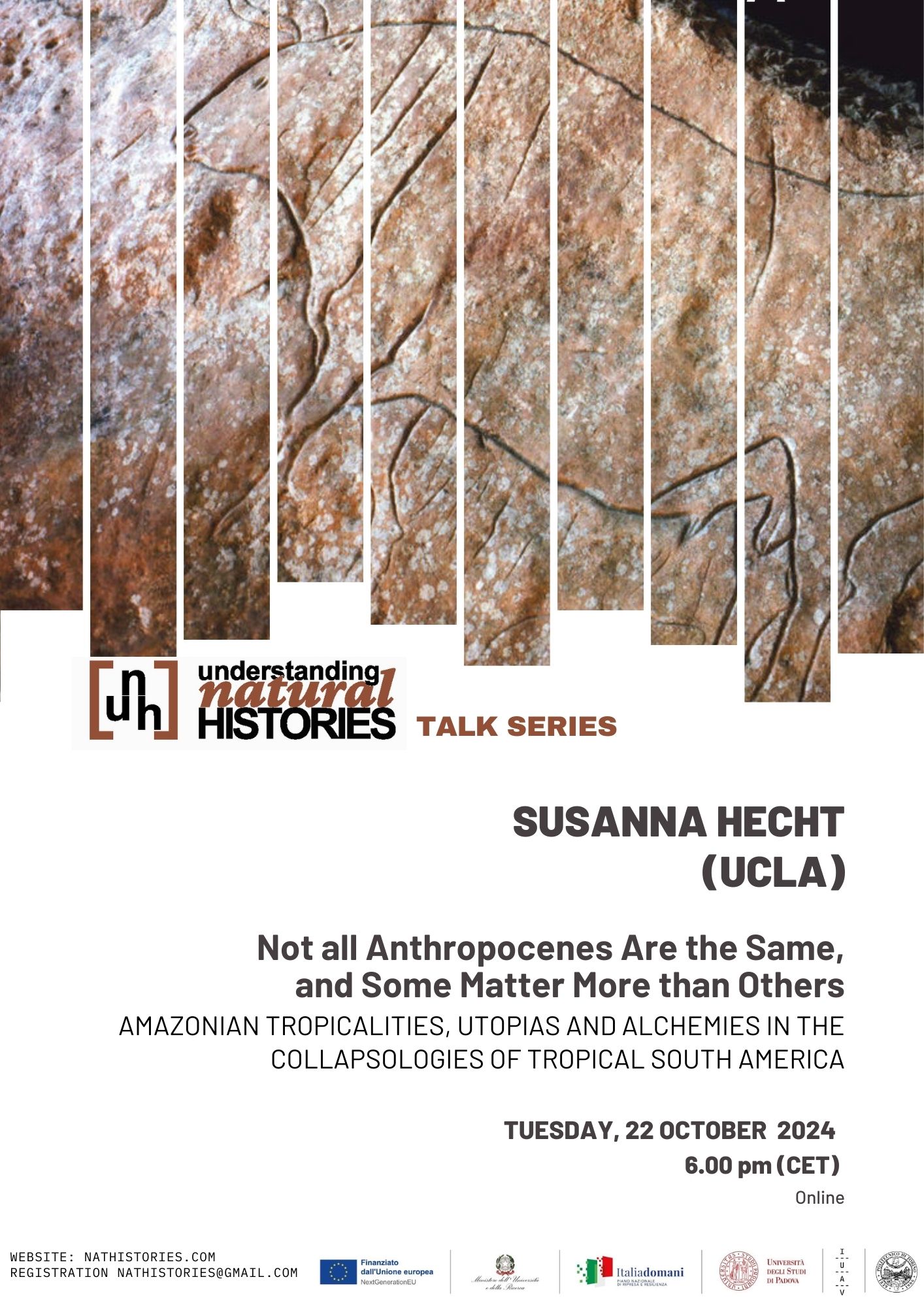Susanna Hecht, ‘Not all Anthropocenes Are the Same, and Some Matter More than Others’
Tuesday, 22 October 2024

UNH TALK SERIES
The temperate zone was largely under ice until about 13K years ago, and experiences strong winters which while not “abiotic” are characterized by reduced biological activity. The tropics, and especially the Amazon, are forests that are millions of years old, are ecologically active throughout the year and are characterized by very high diversity and ecological complexity that the early arrivals (this date is contested) into the tropics had to navigate. What we can see from the early rock art is tremendous sensitivities to an array landscape and forms of diversity which are reflected in myths, ontologies and epistemes. Current scientific analytics and ethnographies are now converging on the importance of the evolutionary interactions between indigenous populations and their nature philosophies as part of a different kind of anthropocene, which has been obscured by a range of nature-political ideologies of “tropicality and tropicalism” . This talk explores how these ideas differed from the more widely used ideologies of “orientalism” and classical colonialism in the creation of a kind of “emptiness” that facilitated obliteration of socio natures and their replacement by more legible natures/landscapes. The emergent new paradigms of tropical ecological history place into context a more eco-supportive anthropocene.

